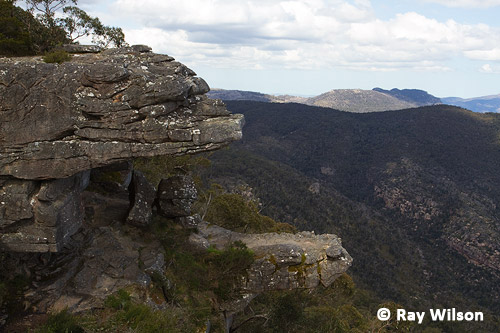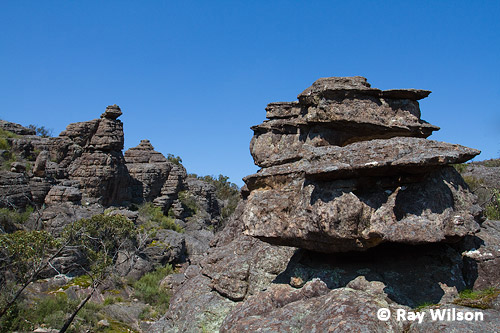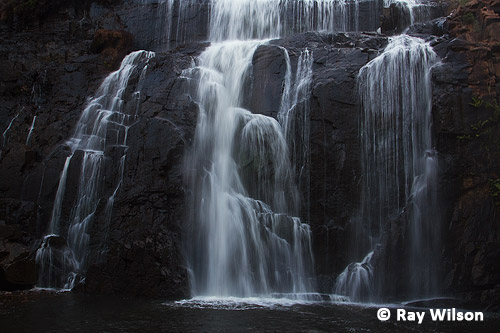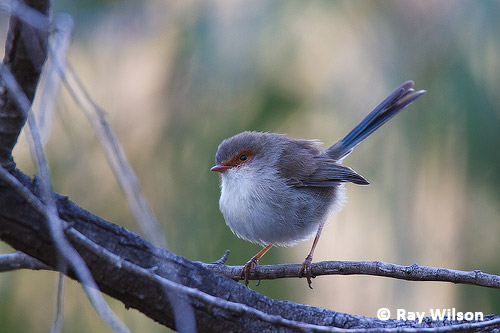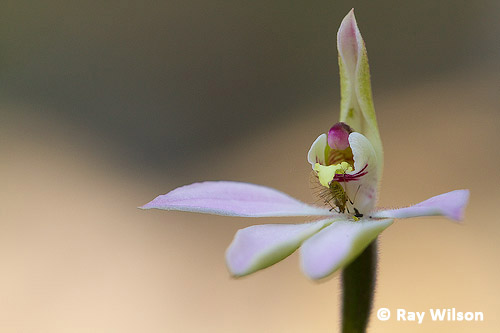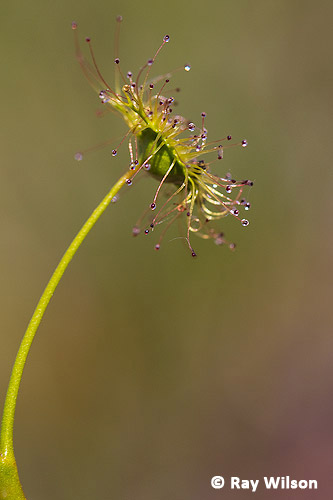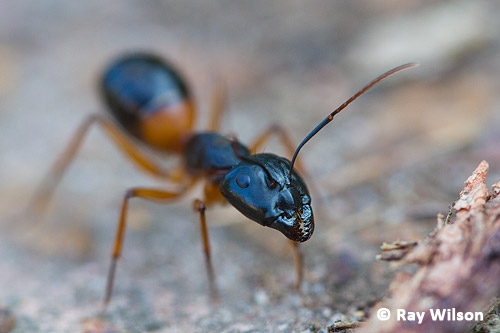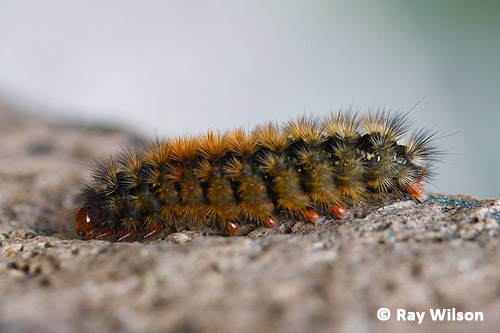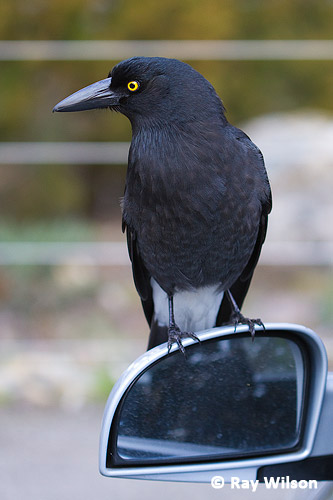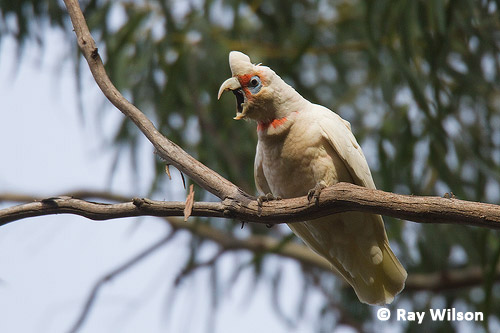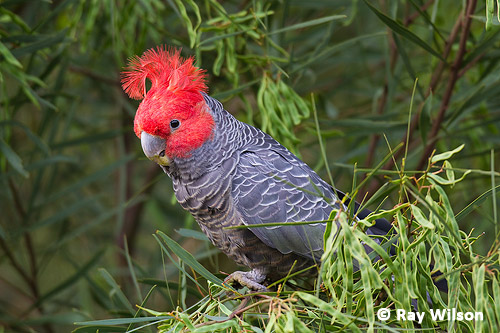
- Home
- Workshops / Tours
- Diary / Blog
- Galleries
- Foreign Trips
- Tasmania 2016
- NE Queensland 2016
- Western Alps 2016
- NE Spain 2016
- Australia's Wet Tropics 2015
- Australia's Top End 2015
- SW Australia 2015
- Switzerland 2015
- Andalucia 2015
- Belize 2015
- Australia 2014
- Switzerland 2014
- Belize 2014
- Bahama Islands 2014
- Switzerland 2013
- Ecuador 2012-2013
- Florida 2011-2012
- Vancouver Island 2011
- Australia 2010
- Peru 2008
- Bulgaria 2007
- Lesvos 2006
- California 2006
- New Zealand 2005
- Extremadura 2005
- Goa, India 2004
- The Gambia 2003
South-eastern Australia
25th September - 17th October 2010
Grampians National Park, Victoria
The Balconies
The Grampians are a sedementary sandstone mountain range that rise to just over 1100m above sea level. With Melbourne only 250km away, they are a very popular tourist destination especially since most of the park is easily accessible by car. The most popular spots with general tourists are probably the unusual rock formations of the Balconies (above) and the Wonderland Ranges plateau (below).
Wonderland Range
One of the main track through the Wonderland Range passes up through "The Grand Canyon". The weird rock formations of this spectacular little gorge almost look like they have been man-made. Unfortunately the popularity of this spot has resulted in the health-and-safety brigade going completely over the top, and the steel handrails and metal steps that abound on this track completely ruin the natural beauty and atmosphere of the site.
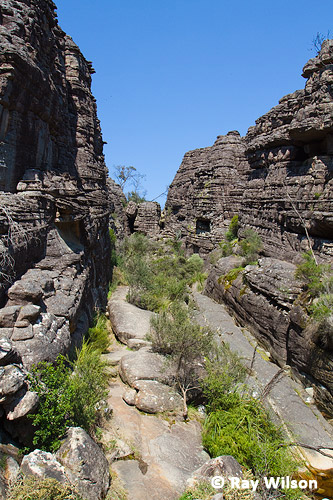 "The Grand Canyon" |
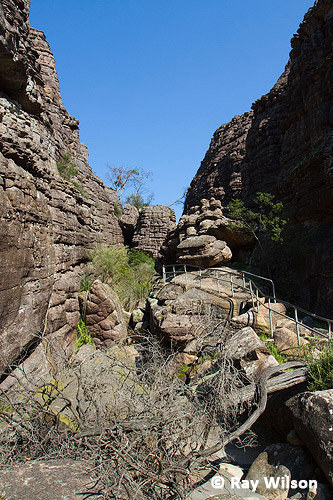
Health-and-Safety gone mad |
There are many waterfalls within the park, the most spectacular of which are the MacKenzie Falls. On 9th December 2010 storm damage resulted in the closure of the steep path down to the base of the falls from so at the time of writing it is not currently possible to get the view I got when I took the photo below.
MacKenzie Falls
In the early morning, Red-necked Wallabies can be seen grazing on the verges at the MacKenzie Falls car park. The photos below were taken about 20minutes after sunrise.
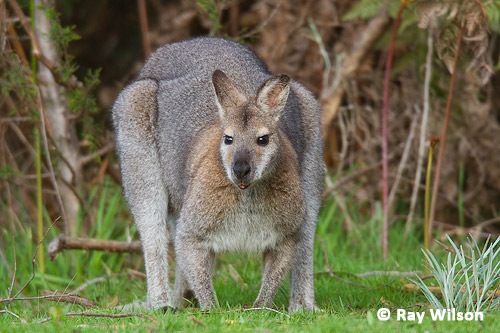
Red-necked Wallaby (Macropus rufogriseus)
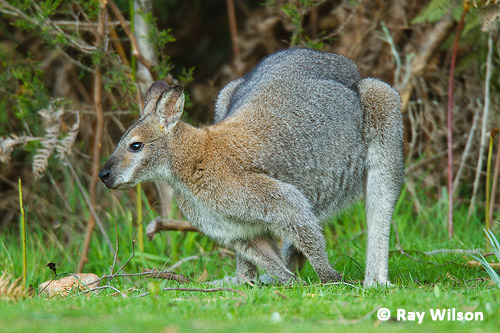
Red-necked Wallaby (Macropus rufogriseus)
After visiting the waterfalls I went for a walk up one of the firebreak trails that started at the car park. I didn't, however, find much in the way of wildlife except for a few Eastern Grey Kangaroos...
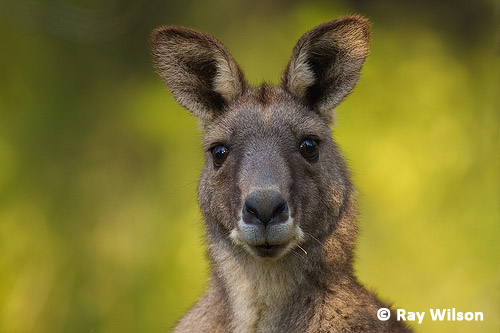
Eastern Grey Kangaroo (Macropus giganteus)
...and the ubiquitous Superb Fairy-wrens.
female Superb Fairy-wren (Malurus cyaneus)
As always when there is a lull in the birdlife, I turned my attention to photographing the flowers instead.
Caladenia Orchid sp. (Caladenia sp.)
Sundews are plants I have always associated with boggy areas, so to find them growing in a dry eucalypt forest was a bit of a surprise.
Tall Sundew (Drosera auriculata)
Ant sp.
Caterpillar
On my return to the car park, a Pied Currawong landed on the wing mirror of my car obviously hoping I would feed it.
Pied Currawong (Strepera graculina)
On my final morning in the park, I took a trip down to the Silverbrand waterfall. Not the most spectacular waterfall I have ever seen but it is quite unusual in that there is no pool of water at its base. Instead, the water drains immediately through the rocks into an underground stream which emerges about 200m from the base of the waterfall.
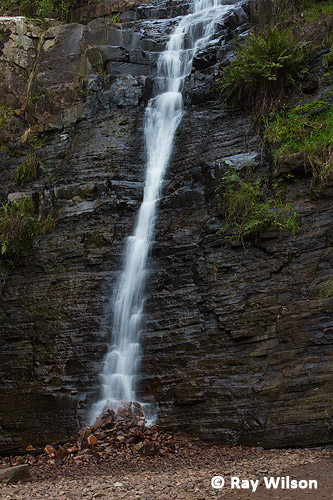 |
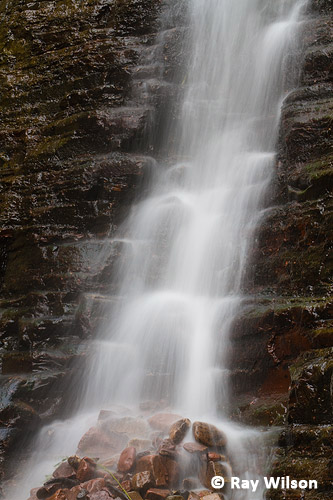 |
Silverbrand Falls
There was plenty birdlife in the quiet wooded valley downstream of the waterfall.
Long-billed Corella (Cacatua tenuirostris)
A pair of noisy Long-billed Corellas were nesting in a hollow tree quite close to the path.
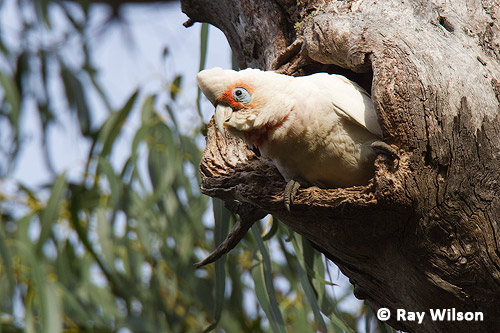
Long-billed Corella (Cacatua tenuirostris)
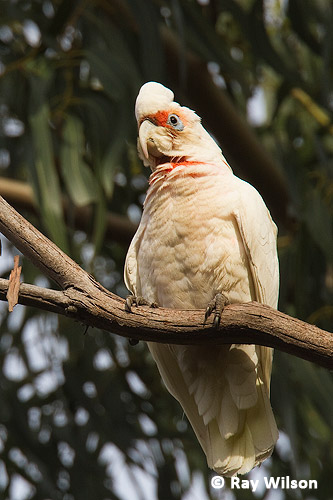 Long-billed Corella (Cacatua tenuirostris) |
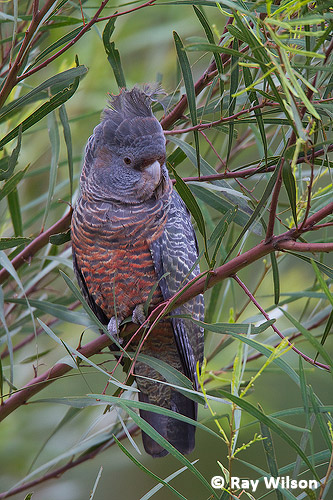 female Gang-Gang Cockatoo (Callocephalon fimbriatum) |
The star birds of the morning, however, were the pair of Gang-Gang Cockatoos that landed in a tree 6m away from me just after I had packed my camera away. A moment of frantic unpacking ensued while I fervantly hoped they would stay long enough for me to get my camera back out of its bag and assembled on the tripod.

Gang-Gang Cockatoo (Callocephalon fimbriatum)
Thankfully they did stay and I spent the next 10 minutes happily firing off over 300 shots of these beautiful, charismatic birds.
Gang-Gang Cockatoo (Callocephalon fimbriatum)
Ray Wilson owns the copyright of all images on this site.
They may not be used or copied in any form without prior written permission.
raywilsonphotography@googlemail.com
